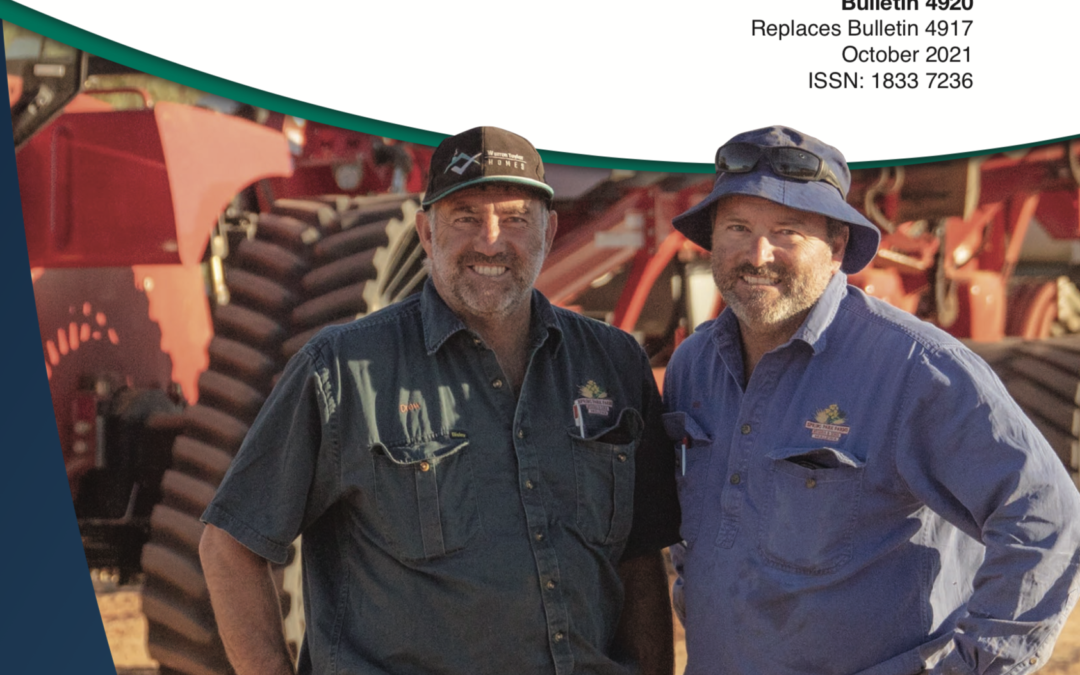The 2022 Western Australian Crop Sowing Guide is now available to assist grain growers to plan next season’s seeding program, with a wealth of credible, independent material to optimise crop productivity and profitability.
The online and hard copy publication provides a one-stop-shop for crop variety and agronomic information so growers and consultants can evaluate and compare options to best suit their operations.
The annual publication was produced by the Department of Primary Industries and Regional Development (DPIRD) and includes data from the Grains Research and Development Corporation’s National Variety Trials (NVT).
The essential compilation provides detailed variety guides for wheat, barley, oats, canola and pulses, including lupins, lentils, field pea, chickpea, faba beans and vetch.
Department crop science and grain production manager Bob French said the 2022 Guide had been updated with the latest industry developments.
“This valuable reference document will assist growers to make informed decisions about crop and variety selection, backed by NVT data, disease resistance ratings and agronomic advice,” Dr French said.
“It is particularly useful for growers considering a new crop variety, allowing them to compare yields, quality and disease traits, while taking into account farm diversity, risk mitigation and current market requirements.
The wheat section profiles three new offerings, Calibre, LRPB Avenger and Valiant CL Plus.
While no new oat varieties were released during 2021, Dr French said there were indications that new grain and hay varieties would be available in coming years.
“Until new varieties are released, growers will continue to produce high yielding crops from established varieties to satisfy increasing demand for high quality, food-grade oat grain and feed-grade oaten hay,” he said.
The 2022 Guide includes useful agronomic and market advice so growers can determine the right package for their business.
“The introduction of tariffs on barley imports into China in 2020 has changed the trade flows for barley,” Dr French said.
“It is expected that a weaker market for malt barley and more robust demand for feed barley will likely continue, unless there is a change of policy in China.
“Before making a barley choice, it will be important to consider market demand, pricing signals, location of segregation sites and the risks associated with delivering malt-grade barley.”
The 2022 WA Crop Sowing Guide also has information on the new barley varieties, Beast, Commodus CL, Cyclops and Minotaur, as well as updated information on Buff, Laperouse and Maximus CL.
Dr French said it would be important for canola growers to select the most appropriate variety for their farming system, with canola prices expected to continue to soar in 2022, combined with a possible shortage of seed.
“The canola section outlines key points to consider and alternatives to HyTTec Trident, which can be carefully scrutinised,” he said.
“There are eleven new canola releases for 2022, including a new herbicide tolerant type with a combination of both triazine tolerance (TT) + Liberty Link (LL) – InVigor LT4530P and the first new TT open pollinated (OP) varieties since 2015, DG Murray and DG Bidgee.”
The pulse section agronomy guides have been updated to include new chemistry available for weed and disease management.
The section includes insights into field pea varieties PBA Taylor, GIA Kastar and GIA Ourstar, as well as the Lentil variety GIA Leader, which all have limited testing in WA.
Dr French said WA growers may be able to source seed of two new pulse offerings in 2022.
“The chickpea variety CBA Captain, which combines top yield with greater harvest height, is proving to be a popular option,” he said.
“Faba bean line PBA Amberley, with its excellent chocolate spot resistance, will be extremely valuable to growers in medium-high rainfall areas, where disease management is of concern.”
The 2022 WA Crop Sowing Guide can be downloaded for free from agric.wa.gov.au, while hard copies will be available from some rural suppliers and can be requested from department offices or via the website.

